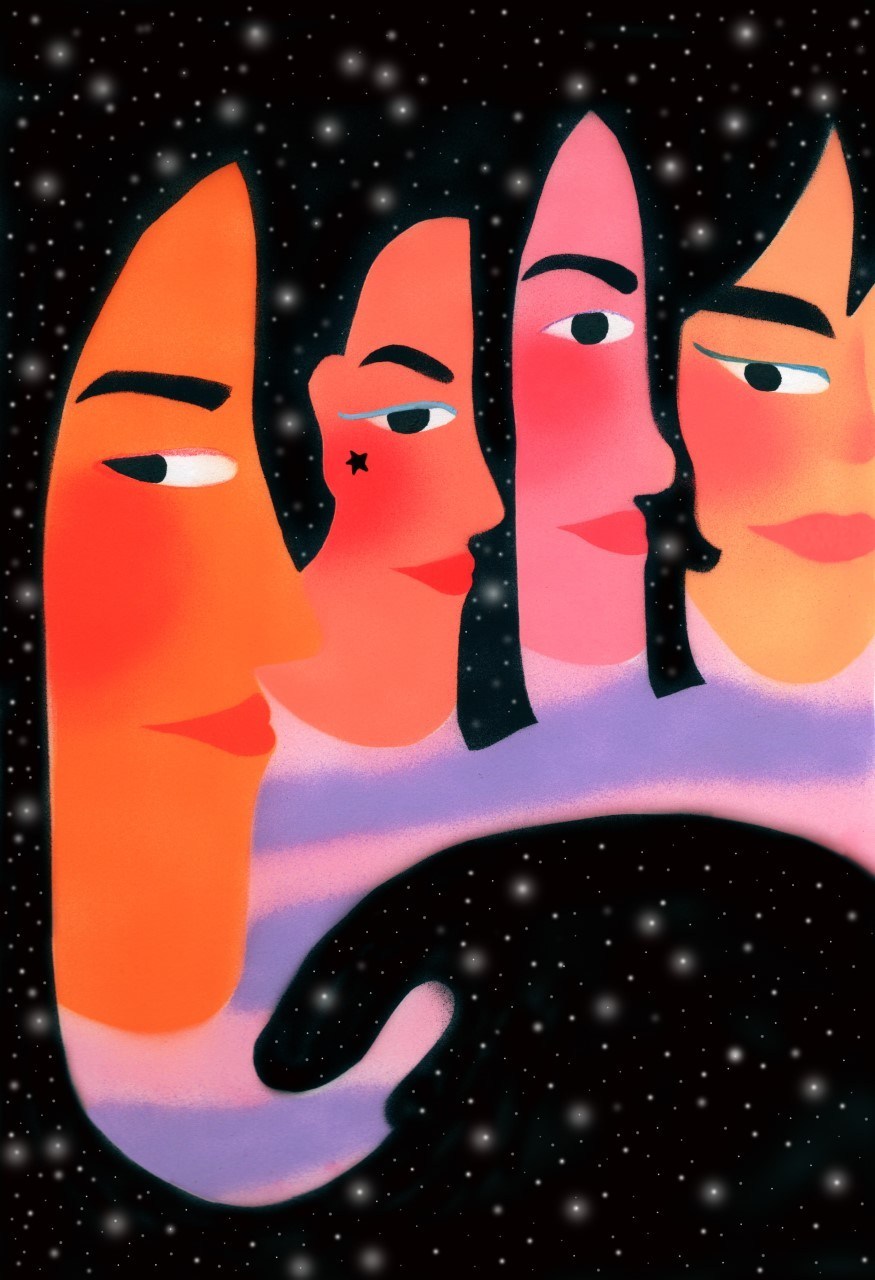Illustration by Li Ya Wen
Story by Mica Kendall
For years, the alternative music genre has been notorious for its male dominated presence within the music charts and radio play. Directly coinciding with a male dominated industry, the prevalence of more ethnically diverse artists was also bleak. However, over the years, beneath the surface level of Billboard’s top alternative charts, various ethnic artists have been rising into the public consciousness, specifically women of color. Artists such as Mitski Miyawaki, who has been producing a stream of phenomenal albums since 2012, suddenly skyrocketed into the stratosphere of increased public attention following the release of “Be the Cowboy.” Additionally, Michelle Zauner of Japanese Breakfast has been touring nonstop for two and a half years following the millions of streams shared among her two releases. Now, there is plentiful potential in up and coming artists such as SASAMI and Tanukichan.
All four of these women share a similar foundation that ties into their success: their sense of independency and their ability to embrace vulnerability within their songwriting. Mitski, Japanese Breakfast, SASAMI and Tanukichan are bringing something completely fresh and intimate into the realm of alternative music and not only are their voices being heard, but their ethnic representation does not go unnoticed towards the progressivity of talent in music.
Mitski Miyawaki is a perfect example of how years of underrated hard work can suddenly catapult towards sold out world tours and a Grammy nomination for “The Best Recording Package.” Her latest release, 2018’s “Be The Cowboy,” not only earned “Pitchfork”’s rating for Number 1 Album of 2018, but earned Mitski the publicity that she has deserved since her 2012 album “Lush.”
What makes “Be The Cowboy” stand out from the surplus of alternative indie albums that typically circle around cliches of heartbreak and falling in love is Mitski’s attention towards identity, loneliness, and existentialism. “Be The Cowboy” is structured around a conceptual narrative where the characters of the album are reflective of Mitski herself. Lyrically enriched with a concoction of metaphors and symbolism that reoccurs throughout the 14 tracks on the album, “Be The Cowboy” feels reminiscent of a classic poetry book. Her album’s focus on topics that are deemed “negative” or that we may tend to brush aside in our daily lives gives it this sense of relatability that seems to have resonated within the millions of streams the single “Nobody” has alone. Mitski even takes a step further with her artistic production in her live shows by incorporating performance art into her choreography and visuals to match the essence of each of her songs. Whether its her frantically pacing back and forth or bicycle pedaling on a chair for a whole song, Mitski has repurposed art into a new and innovative form found within her poetic lyrics and stage presence.
In addition to personal narrative albums, Michelle Zauner of Japanese Breakfast has produced two incredible albums, “Psychopomp” (2016) and “Soft Sounds From Another Planet” (2017) following the passing of her mother due to cancer. Though the narrative in both of her albums may seem like an umbrella of sadness in homage to the loss of her mother, Zauner instead repurposes her lyrics to manifest a sense of beauty from pain. Both albums feel like a storytale about personal reflection and are beautifully crafted to emphasize how disconnection and internalization within one’s self is vital towards self growth.
Blending a variety of sounds such as psychedelic synths, glitter pop, industrial sci-fi, and indie alternative, Zauner breaks the boundaries of sound within the alternative genre. Even more impressive to her music endeavors, Zauner engages with creative writing on the side with her New Yorker essay and her recent book signing deal for her personal memoir called “Crying in Hmart.” Not only does Zauner openly embrace her mother’s Korean heritage in the form of her music and love for Korean food, but Zauner musically proves how comfort can exist in acknowledging catharsis.
Lastly, up and coming artists such as SASAMI and Tanukichan are both independent, multi instrumentalist women who are translating their personalities and every day lives into the form of honest and introspective lyrics. Sasami Ashworth of SASAMI (formerly the keyboardist of Cherry Glazerr), released her own debut album this year called, “SASAMI,” which leaves her emotions open for audience interpretation and therapeutic relatability. Hannah Van Loon of Tanukichan released her debut album, “Sundays,” last year and seamlessly blends her melodies and shoegaze-esque sound into a narration of her personal self-growth.
The Asian representation of these four female artists is pivotal to the alternative genre. As a Thai, Asian American woman who has been constantly invested in the alternative music genre, the increased popularity and representation of these women is not only badass, but extremely exciting to see emerge into the forefront of music. Their emphasis on atypical lyrics focused around identity that emotionally resonates with their listeners is a quality that does not go unnoticed. As SASAMI said in a interview with Stereogum, “there is nothing more important or more powerful than women uplifting and supporting each other.” These women are quintessential to proving how alternative music is able to be completely redefined.

